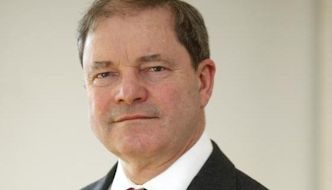Geoffrey Clifton-Brown MP gave a speech to the UN Gloucestershire County Branch entitled ‘The role of the UN Post-Arab Spring’.
In his speech he spoke about the future role of the UN, and how it needs to reform itself to face the challenges of the modern world. Using the Arab Springs as an example, he discussed the fact that the world is a very different place compared to when the UN was first established 70 years ago.
The speech contained some fairly radical ideas about how the UN might embrace the challenges a modern world is throwing at us to ensure the UN is able to continue in its mission to secure peace across the world, and was very well received by those assembled.
He advocated developing a mechanism through which the UN Security Council might be forced to come to a compromise if they fail to reach a decision themselves. Mr Clifton-Brown argued that this might involve a changing relationship between the UN General Assembly and UN Security Council whereby the General Assembly could, with a three-quarters majority, pass a motion forcing the Security Council to reconcile their differences before mandating the Secretary General to take necessary action.
Geoffrey Clifton-Brown also spoke about the challenges that the Environment poses and suggested that the UN has not fully embraced those challenges. He proposed the same reconciliation mechanism for both ensuring peace and dealing with Environmental concerns.
These are some extracts from his speech:
“There has been huge proliferation of nuclear weapons, as well as developments in space, the internet, population issues and environmental challenges. In these respects the UN, within its structures, have not been able to completely embrace the new challenges the modern world is throwing at us.
Lots of countries have very sophisticated weapons, and the numbers who do is increasing. The Security Council therefore needs to represent the new world as in its current form many countries, who need to be involved in key military UN decisions are being overlooked. Currently much of Africa, the Middle East, India and South America are being left out, and they are all going to be the fastest growing powers of the world, in all different senses. “
“A reconciliation mechanism is needed within the Security Council, so that the UN is no longer paralysed due to the actions of one or more members of the Security Council, as has been the case in some of the Arab uprisings. A mechanism to essentially force the permanent members of the Security Council to overcome their differences on particular issues, such as Syria, so that action can be taken to maintain peace when disputes arise. “
“Environmental concerns are extensive and increasingly serious, with a lack of effective international cooperation. It took the international community far too long to agree to a successor to the Kyoto protocol to tackle Climate Change. With a dedicated body, we would hopefully be able to come to an agreement on these important international concerns in a much more timely matter.
I would also propose using the same mechanism I discussed earlier to ensure action is taken on these environmental concerns. Currently, the remit of the Security Council concentrates narrowly on issues of maintaining peace and military action. I see no reason why the UN could not extend the remit of the Security Council to include environmental issues which threaten the world.“

